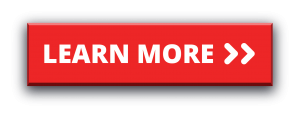2017 Car Buying Tips For Canadians
Buying a car in an exciting milestone. Usually making a car purchase means that your will get a newer car that is in better condition than your previous vehicle. The unfortunate side of making a car purchase is navigating the often confusing and time-consuming process. A car is the second biggest purchase that a person will likely make throughout their life, so it is sensible to take time to research the process and secure the best deal that you can. There are thousands of vehicles to choose from in [cf_geo return=”state” default=”Your State”]!
Figure out your budget
As soon as you decide to make a car purchase, your first step in the process is to figure out what your budget is. Take an honest look at your monthly expenses versus your monthly income and decide how much expendable income you have after you’ve factored in all of your regular monthly bills. Other considerations to take into consideration are the costs of ownership and maintenance on the vehicle that you want; this includes gas, servicing, insurance and other costs associated with buying a car. A recommended budget to allocate for a new car is roughly 20-25% of your household income. Spending more than what you can realistically afford puts you at risk of developing a large debt that is difficult to repay. You can use this free online budget calculator tool to better help you calculate all of your monthly expenses.
Determine if you’ll buy new or pre-owned
After you have determined what your budget is, then you can begin to look at vehicle options. It is important to decide if you will purchase a new or used car. There are advantages and disadvantages of purchasing either type. Several advantages of buying a new car include newer features and technology, ability to pick from a variety of options, mint-condition interior and exterior, and virtually no mileage. The trade off for buying a new car is that they can cost significantly more than a used car, and you take the first hit on depreciation of the value of the car. New cars lose approximately 20% of their value as soon as they are driven of the lot, which means that your car is almost instantly worth less than what you will pay for it.
Buying a used car may save you some money, but could cost you more if you don’t do your research prior to shopping around. You can get a great deal on a used car if you are savvy and prepare well. Take time to research the accident history report of a car. Be sure to check the registration of the vehicle and compare the VIN number, to ensure that you are buying the exact vehicle listed from the dealer and to reconfirm that your dealer is a legitimately registered dealer. Also, be on the lookout for common auto scams that can leave you paying for a bad vehicle. Find a car in [cf_geo return=”state” default=”Your State”] in seconds!
Narrow your list and test drive options
With so many car options out there, it is hard to know which car is the best for you. Narrow down your options to a short list of vehicles that fit your needs. Take into consideration where you’ll be driving the vehicle, how often and distance, if you will need space to haul large items, or if you will need seating for passengers. Price is a huge factor to consider when narrowing your list, because you will want to pick a vehicle that fits within your budget. Lastly, you will want to narrow your list down by features that you want in a car; navigation system, bluetooth capabilities, sunroof, power locks and windows, convertible, etc.
Once you’ve narrowed your list to a few options, test driving the car is very important. Most people keep a car for several years, so it’s important to purchase a car that feels good to drive. If you are buying a used car, the test drive phase is among one of the most important steps that you will take in buying your car. When you test drive a used car, be on alert for any sounds that the car makes and pay close attention to how it drives. Be sure to take the car for a long enough drive to make yourself aware of potential issues that the car may have, it make take a few minutes or miles for a part to start showing signs of wear. See auto financing options here.
Check out your financing options
Research your financing options prior to entering into the dealership. You can click here to see loan options that are specific to you. Financing options break down the full amount that you owe on your car purchase into more manageable monthly payments. Once you finance a vehicle, you will be making payments to your lender directly and not to the dealership. A loan takes into account the cost of the car, plus a small interest charge that is profit to the lender for taking a calculated risk by loaning you the money to pay off your car. The interest rate that you will pay varies based on your credit score and credit history. Buyers with better credit qualify for loans with a lower interest rate. On the reverse side, buyers with lower credit qualify for loans with higher interest rates. Most people can obtain a loan to finance the purchase of a new or used vehicle. In fact, you can apply for and obtain a car loan for good or bad credit if you meet these three benchmarks:
- You make at least $1,800 a month in income
- You can acquire car insurance
- You have a driver’s license
New car buying tips
A new car offers the reliability and peace of mind to know that you are buying a car that has been driven very little, and has factory parts with virtually no wear. New cars also come with great warranty packages that will cover some of the costs of wear and tear on your new vehicle.
Since buying a new car can likely cost you more, take a look at the annual percentage rates (APR) of each financing option that you qualify for. This will give you a better idea of how much you will expect to pay on your car loan in full. While having an affordable monthly payment is great, it is also smart to keep your loan as short as you can afford it. Keeping your loan term to a minimum will actually save you money over time, because you will pay less interest on the car over time.
Click here to see loan options that are specific to you.
Compare prices at various dealerships and use quotes as a negotiation tactic for securing a lower price. Look at manufacturer websites to see promotional offers and specials. Just keep in mind that most times promotional offers are only available to purchasers with good or excellent credit. You can see financing options in [cf_geo return=”state” default=”Your State”].
Used car buying tips
Buying a used car is a great way to save cash, and still drive of the lot with a smart purchase. Be smart about buying a used car and do your research. One great way to find a used car is to purchase through a certification program offered through specific manufacturer dealerships. These cars tend to have less miles and even better, have passed a rigorous background and accident check and a physical inspection to ensure that the car has not undergone serious accidents or has damaged parts. Buying through a dealership’s certification program takes some of the worry out of buying a used car, because you don’t have to take a risk on buying a bad car. If you choose to buy a used vehicle from a dealership that does not offer a certification program, take your time to run the car’s history report to view any major accidents that the car has been through. Also have a mechanic inspect the car prior to purchase, to check for any major electrical or mechanical issues. Lastly, check for liens on the car, which could transfer to you if you go through with the purchase of the car.
There are many great car options available for you and your family! Making a car purchase isn’t a light process. Take time to do adequate research and prepare for buying your next car.
We provide free service in 8 provinces, Ontario, Nova Scotia, New Brunswick, PEI, New Foundland, Manitoba, Saskatchewan, and British Columbia. We service everyone from Toronto, Ottawa, London, Hamilton, Mississauga, North Bay, Thunder Bay, Sudbury, Sault Ste. Marie, Barrie, Oshawa, Brampton, Kitchener, St. Catharine’s, Niagara Falls, Belleville, Windsor, Bracebridge, Gravenhurst, Collingwood, Orillia, Peterborough, Nepean, Cornwall, Kingston, St. Johns, Saint. John, Moncton, Winnipeg, Brandon, Red Deer, Calgary, Edmonton, Saskatoon, Regina, Kamloops, Victoria, Surrey, Kelowna, Vernon, Prince George, Nanaimo, Fort McMurray, Banff, Moose Jaw, Prince Albert, Swift Current and the rest of Canada. Our dealer network is one of the largest in Canada and always provides free finance to own quotes.



 Bad Credit
Bad Credit